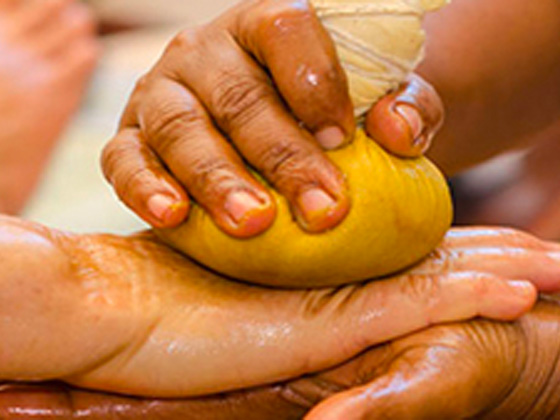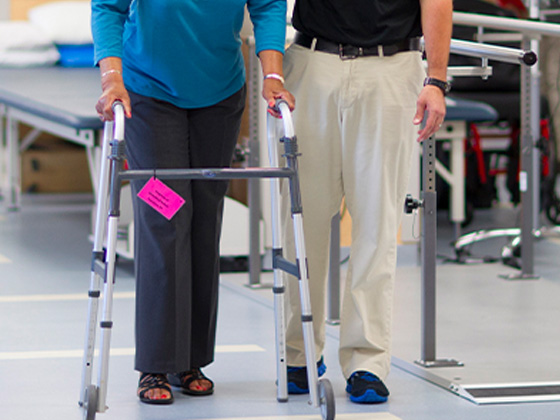STROKE REHABILITATION CLINIC

Stroke is a brain injury caused by a sudden interruption in the blood supply of the brain. Stroke is serious, just like a heart attack and is sometimes called a "brain attack." It occurs when part of the brain does not receive the needed blood flow for one of two reasons i.e. either the blood supply to a part of the brain is suddenly interrupted, or a blood vessel in the brain ruptures and blood invades the surrounding areas.
Types of stroke
- Ischemic stroke - Most strokes (85%) are ischemic strokes. An ischemic stroke occurs if an artery that supplies oxygen-rich blood to the brain becomes blocked. Blood clots often cause the blockages that lead to ischemic strokes.
- Hemorrhagic stroke - A hemorrhagic stroke occurs when an artery in the brain leaks blood or ruptures (breaks open). The leaked blood puts too much pressure on brain cells, which damages them
- Transient Ischemic Attack (a warning or “mini-stroke”) transient ischemic attack (TIA) is sometimes called a "mini-stroke." It is different from the major types of stroke because blood flow to the brain is blocked for only a short time—usually no more than 5 minutes

STROKE TREATMENT IN AYURVEDA
Stroke or pakshaghata in ayurveda is considered as a vata vyadhi. The treatment protocol includes:
- Sarvanga abhyanga
- Patra potali sweda
- Ruksha sweda
- Shashtika shali pinda sweda
- Shirodhara
- Vasthi
- Abhyanara sneha pana
- Nasya
- Dhoomapana
- Ushna upanaha
- Physiotherapy
PHYSIOTHERAPY TREATMENTS FOR STROKE
In order for people who have had a serious stroke to resume their regular daily activities and take care of themselves as independently as is practical, neurologic rehabilitation focuses on reducing impairments and disabilities. The adult central nervous system can adapt or reorganize itself to restore impaired cognitive and motor abilities. The treatment of stroke patients varies depending on how they present and what their main concerns are. The patient’s needs, not the facility, determine the kind and level of care.To achieve better results, physical therapy should be started as soon as possible.


YOGA FOR STROKE PATIENT
Yoga is a beneficial addition to stroke rehabilitation therapy because it accelerates and extends recovery. Yoga enhances the effects of stroke therapy. Yoga practitioners may benefit from increased flexibility, better balance, maximum strength, pain control, and increased energy. Throughout these sessions, participants are instructed in poses that can be performed while sitting, lying on a bench, or using a wheelchair as support. Yoga has also been shown to increase independence with daily living activities, lower fall-related fear, and improve life quality. Yoga has been shown to result in longer steps, a more powerful and quicker gait, increased strength, and endurance, in addition to improving balance and flexibility.
THE GOAL OF STROKE REHABILITATION
Our aim is to enhance patient's function, independence, and overall quality of life. Our stroke rehabilitation program is comprehensive and evidence-based. We’ll collaborate with you to create a tailored treatment plan that targets your unique requirements and objectives
- Improve mobility, strength
- Better speech, communication
- Regain daily independence
- Lower future stroke risk
- Enhance cognition, communication
- Address emotional well-being
- Develop reintegration strategies

How successful is stroke rehabilitation?
The success of stroke rehabilitation varies depending on several factors, including the severity of the stroke, the individual's commitment to therapy, and their overall health. However, with adequate therapy, many people make great progress.
Our Packages
20 days treatment plan: ensuring 35% improvement
40 days treatment plan:ensuring 60% improvement
60 days treatment plan: ensuring 80% improvement
